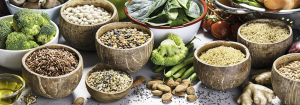Breakfast – it’s the most important meal of the day so we’re told – and it’s no secret that breakfast cereals have become a mainstay in modern day diets. Their convenience offers a quick solution to the morning
rush, and their pervasive presence on our TV ads makes them seem ever so tempting. Over the last few decades, children and adults alike have increasingly consumed toasted and often sugar-coated cereals, drowned in a pool of milk for their first meal of the day. But, is this the best way to start off your morning?
Speaking to nutrition or fitness professionals, most will tell you that if you’re attempting to lose weight or maintain a healthy figure, a typical breakfast cereal like cornflakes is not the healthiest way to start
your day. And with all that sugar, it’s probably not going to gear you up for a jam-packed day at school or the office. So…why are we choosing convenience over health?
Read on to find out why breakfast cereals are affecting our ‘get up and go,’ and our top 5 healthy breakfast ideas to help you rise and shine!
The sugar-coated truth about breakfast cereals
Due to their carby nature, many breakfast cereals are shockingly high in sugar. In a typical UK brand of cereal, you’ll find an impressive 11g of sugar on average per 30g. That’s over a 1/3 of your recommended daily amount of sugar in one bowl! And what’s worse, is that adults usually eat around 60g per serving. That’s 6 teaspoons of the pure white stuff…
Even without the sugar, they’re a high Glycaemic Index (GI) food. Resident health guru and Fitness Expert for Evergreen Life, Matt Jolley, explains that “your body is likely to experience severely elevated
levels (of sugar) after consuming high-GI breakfast cereals. This ‘spike’ in blood sugar is what causes a lot of us to gain immediate energy. But, what goes up must come down – it’ll drop off later in the morning and we’ll start feeling tired, sluggish and maybe less productive. We might even turn to other sources of energy such as caffeine.” That’s not good if you’ve got a busy afternoon of meetings or classes!
Check out our article on all things Glycaemic and see how to control your blood sugar the right way so you don’t end up snoozing through your lectures.
Sugar = sugar cravings
By starting your day off with a large blood sugar spike, you send your blood sugar into an unstable state for the rest of the day, this means your body is likely to suffer cravings of carbs and sugar. Satisfying these cravings means you’ll continue to peak and trough in your blood sugar levels. So, if you’re wondering why you’re really craving chocolate tonight? It’s because of your granola this morning…
Depending on how quickly you metabolise the carbohydrates in your breakfast (which you can find out through your DNA), your blood glucose levels may remain raised for a long period of time. This can increase your chances of weight gain, and result in higher resting blood glucose levels, which can affect things like your energy and focus throughout the day, as well as your sleep.

5 healthy breakfast choices
It’s not all bad, studies have shown that eating healthy breakfast cereals is associated with diets higher in vitamins and minerals. But, it all depends on what choice you make… Here’s 5 healthy breakfast choices (both cereal and non-cereal options to satisfy everyone!):
- Porridge
If you want to manage your blood sugar better as well as maintain optimal heart health, consider porridge to start off your day. Matt says to “make sure there’s no added sugar or salt, as many instant varieties sneakily put in extra nasty additives!” Pure rolled oats cooked with milk or even a dairy alternative like almond milk proves a healthy breakfast.
The wholegrain oats contain B vitamins as well as a soluble fibre called beta-glucan that’ll work to lower your cholesterol. Sweeten with berries or stir in a teaspoon of 100% peanut butter for a burst of flavour. - Muesli
Nutty and no sugar options make muesli one of the best breakfast cereals you can choose. The type of grain is also important – oat, barley and wheat-based muesli can all help reduce cholesterol and the high-fibre content helps to improve bowel function.
Beware! The dried fruit in muesli can sometimes be sweetened with sugar – especially tropical muesli which often contains banana chips. But anything with (sugar-free) raisins, apricots or figs would count towards your 5-a-day.
You could have a go at making your own – here’s a sugar-free muesli recipe we love. - Tomatoes and eggs
Eggs are a trusty breakfast choice. 1 large egg provides you with only 77 calories, 6 grams of protein and 9 essential amino acids. You’ll also get some vitamin A to promote good vision and brain function. Bake an egg along with some tinned tomatoes and spinach for immune-boosting vitamin C. If you want some carbs, just pair with some fresh wholemeal bread for dipping in the tomatoey sauce. Follow the recipe here. - Overnight oats
If you don’t fancy a warm breakfast, combine some porridge oats with yoghurt and let it sit overnight in the fridge. To make it 1 of your 5-a-day, add some fresh fruit like strawberries, some almonds – high in all those good heart healthy fats – and you’ve got a nutrient-rich low sugar breakfast cereal. - Baked beans on wholemeal toast
If you’re fancying a cooked breakfast, make it a healthy 300-calorie version with our homemade recipe. To serve 2, take a tin of butter beans and cook in a tin of chopped tomatoes until piping hot. Flavour with chilli flakes, a dash of Worcestershire sauce and some smoked paprika. Thicken with tomato puree if you like. Serve over a slice of wholegrain, seeded toast for a delicious and nutritious breakfast.
Take control of your health
With Evergreen Life, you can take control of all aspects of your health – not just your morning routine!
You can book GP appointments, order repeat prescriptions and download your GP record, as well as track all your personal health information, so you’ve got a joined-up picture of your health right in the palm of your hands. Download the app today and start taking more control.
https://www.bmj.com/content/350/bmj.h2267
https://www.bmj.com/content/363/bmj.k4943
https://www.ncbi.nlm.nih.gov/pubmed/28934111





